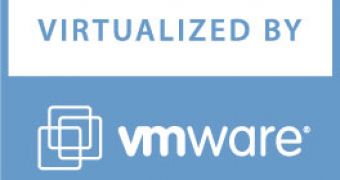WMware, the world-known leader in virtualization solutions, stated recently that it was working on a VMWare Mobile Virtualization Platform, which is set to offer companies the possibility to virtualize smartphones and mobile devices as soon as next year. According to Stephen Herrod, VMware chief technology officer, mobile phones are sometimes used as mobile computers, especially when it comes to businesses, so their importance is growing.
In addition, he said at the Interop industry conference in Las Vegas on Tuesday that VMware was working on the development of the aforementioned solution, which should offer a virtual machine for mobile devices, giving users the possibility to “move” their phone to different devices. However, he also said that the project was only in its early stages at the moment. In addition, it seems that VMware is negotiating the introduction of the technology in future mobile phones, and that the first handsets to include it might come to the market as soon as next year.
Fredrik Sjostedt, VMware EMEA director of product marketing, commented, “The technology is there, and up and running, but it needs to be something that is on handsets when they're purchased,” reports ZDNet UK. According to him, the user data on a phone will be a portable file, easy to transfer to another device if the initial one is damaged, a features that will be able to help corporate IT departments a lot. Additionally, it seems that companies might also have the option to run more than one virtual smartphone on the same device.
“Configuring e-mail, secure Web access and corporate applications on phones is a nightmare, particularly where users have gone out and bought themselves a new handset. This means you have an abstraction layer between the application and the phone's operating system, so you can deploy the same image on a Nokia or a Motorola handset, very easily,” Sjostedt said. “Companies will be able to say – just bring your phone to us and we will create a corporate identity that can sit alongside your personal identity. Users can still have their own files and photos, without putting corporate security or data at risk.”
The benefits that mobile virtualization would be able to offer are numerous, Sjostedt says, as it could help manufacturers deploy new applications much easier, without the hassle of testing them on a variety of platforms and handsets. The one area that could see mobile virtualization as a valuable option is the corporate segment, as it can be hard sometimes to make enterprise applications fully functional on mobile devices.

 14 DAY TRIAL //
14 DAY TRIAL //